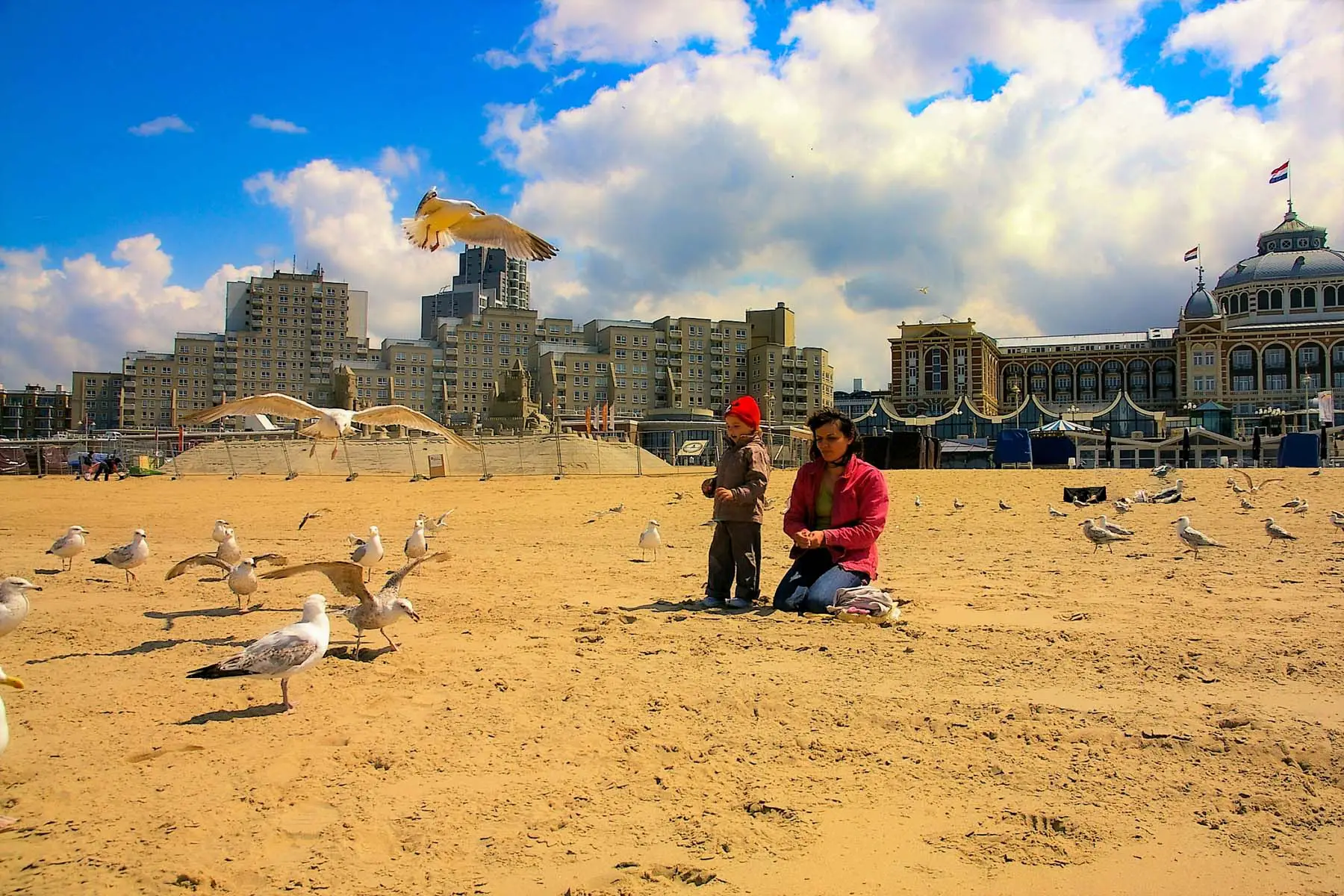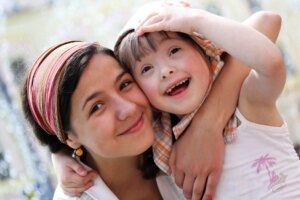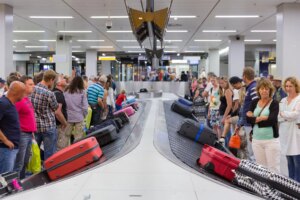As any parent will tell you, arranging childcare can be a full-time job in itself. When living abroad, even in a country as child-friendly as the Netherlands, that task can seem more daunting. However, it doesn’t have to be like this.
Whether you need daycare, after-school care, a nanny, or simply a babysitter, there are numerous options in the Netherlands. To help you decide which option best suits your needs and budget, this article also explains Dutch childcare subsidies.
To help you navigate childcare in the Netherlands, this article covers the following topics:
- Childcare in the Netherlands
- Who can access childcare in the Netherlands?
- Dutch preschool and daycare
- Professional childminders in the Netherlands
- Employer childcare in the Netherlands
- Dutch community childcare schemes
- Before and after school clubs
- Dutch childcare during school holidays
- How to find childcare in the Netherlands
- Childcare costs in the Netherlands
- Child benefits and childcare allowance
- Children’s healthcare in the Netherlands
- Becoming a childcarer in the Netherlands
- Other childcare support available
- Useful resources
Partou
Looking for childcare? Partou encourages children to play and develop. Each in their own way and at their own pace. With challenging activities, personal attention, and a lot of fun with peers. Almere, Amstelveen, Amsterdam, Breda, Eindhoven, The Hague, Rijswijk, Rotterdam, Utrecht… there’s always a Partou location close by. Discover Partou.
Childcare in the Netherlands
The umbrella term for childcare in the Netherlands is kinderopvang. This includes daycare; pre-schools; playgroups; before- and after-school clubs; nannies; childminders, au pairs, and even babysitters.
It’s common for Dutch parents to return to work soon after their children are born. This places a high demand on childcare facilities and most childcare providers have long waiting lists. This is something to bear in mind if you’re relocating to the Netherlands with kids.

The working culture in the Netherlands promotes a healthy balance of work and family life. Government policy encourages this through generous parental leave schemes alongside subsidized childcare for working parents. Many companies also offer flexible working hours, enabling both parents to spend time with their children during the working week.
In 2020, the country was home to 12,055 registered childcare enterprises. All childcare providers need approval from the local municipality and must pass national government inspections. Staff must meet national professional standards and all employees require a certificate of good conduct.
Parents can use the National Childcare Register (Landelijk Register Kinderopvang – in Dutch) to search for approved childcare facilities. The register is also an important tool for parents applying for childcare allowance. It lists each provider’s unique registration number, which parents need when applying for childcare allowance.
Maternity and paternity leave
In the Netherlands, employed mothers get 16 weeks of paid maternity leave. Self-employed mothers can also claim a maternity allowance for 16 weeks.
Partners can take one week of paid leave within four weeks of their child’s birth, followed by another five weeks of unpaid leave during the six months following the birth. It’s possible to claim up to 70% of your salary from the Employment Insurance Agency during this unpaid leave.
Parental leave
Uniquely, the Netherlands also offers parents parental leave (ouderschapsverlof). This (unpaid) leave is available to employed parents of children up to the age of eight. At most, this can be 26 times the number of hours you work per week.
On 2 August 2022, the Paid Parental Leave Act comes into effect. The changes allow parents to claim a percentage of their salary during the first nine weeks of their parental leave.
Who can access childcare in the Netherlands?
Anyone can access informal childcare in the Netherlands when paid for in full by parents. However, registered childcare facilities will request proof that your family is registered in the Netherlands. They do this by requesting your national identification number, known as a Burgerservicenummer (BSN).
It is mandatory to register with your local municipality within five days of arriving in the Netherlands. Upon registering, each member of your family will receive a Burgerservicenummer (BSN). BSN numbers are important for many facets of Dutch life, and our look at getting a BSN number in the Netherlands explains how to get one.
In the case of childcare, the government uses your BSN number to check the number of hours you are claiming childcare allowances for, against the number of hours in the childcare organization’s records.

Families who cannot, for whatever reason, access formal childcare provisions in the Netherlands can opt for an informal babysitter. However, parents opting for unregistered childcare may not be eligible for childcare allowance from the state.
The Dutch government recommends childhood vaccinations. However, vaccinating your child is not mandatory, and childcare centers will admit unvaccinated children. In response to a recommendation from the Committee for Childcare and Vaccination, an inquiry into whether childcare centers may refuse non-vaccinated children is currently underway.
Dutch preschool and daycare
Children in the Netherlands can start primary (basisschool) education on their fourth birthday. Before this, preschool-aged children can go to group-care facilities including daycare centers, preschools, and playgroups.
Daycare (kinderdagverblijven)
Daycare centers care for children from birth to four years old. Waiting lists for popular daycares are often very long. It’s not unheard of to be on a waiting list for up to 18 months! Consequently, parents in the Netherlands often register their children whilst pregnant.
Daycare hours usually mirror the working day, offering care from 07:30 to 18:00 or 08:00 to 18:30. Some centers also offer half-day care. Parents who work irregular hours can opt for a 24-uurs opvang. These provide flexible care during the day and night.
Preschool (voorschool or peuterspeelzaal)
Children aged two to four may attend a Dutch preschool. Most children attend between three and five days per week. In preschools, children learn to socialize through play. For expat children, Dutch preschools often provide their first exposure to the Dutch language.
Working parents can claim childcare allowance towards preschool costs. Families who are not eligible for childcare allowance may also apply for financial support for preschool from their city council, even when only one parent is working. Children with developmental delays may receive a VVE indication entitling them to a free preschool place.
Playgroup (speelinloop)
Playgroups are ideal for parents wishing to accompany their children to group play sessions. Most municipalities have drop-in playgroups suitable for children from birth to two and a half. Parents can enquire about playgroups at their local child health center. Larger cities like Amsterdam may have a playgroup directory on the municipality website. Playgroups are a good way to meet local families and to practice speaking Dutch. You may even learn some Dutch nursery rhymes! They can also help to prepare both you and your child for Dutch preschool.
In cities with large expat populations, parents can also find international playgroups such as the Robbeburg playgroup in Amsterdam.
Playgroups differ in how they operate. Some require enrolment and upfront payment. Others are free drop-in sessions, occasionally requesting a donation or piece of fruit to share among the children. Do your research ahead of time to avoid any disappointment.
Crèche
Some large workplaces have employee-exclusive onsite daycare facilities. These are typically set up in the same way as normal daycare centers. They must follow government guidelines and tend to offer fixed days for each child rather than a more flexible crèche system.
Gym enthusiasts may find it beneficial to enroll at a gym with an onsite crèche. In addition to the benefits of a child-free gym session, some gyms offer ad-hoc care to children of members even when they are doing other activities. There are several David Lloyd clubs in the Netherlands with an onsite crèche.

International childcare in the Netherlands
In Dutch cities with significant expat populations, such as Amsterdam, The Hague, or Eindhoven, it’s possible to find childcare facilities tailored to meet the needs of international families.
These include international schools with early-year provisions, bilingual daycare centers, international playgroups, and childminders and au pairs with international experience.
International schools with early-years provisions
Beginning their early-years education at an international school encourages a smooth transition for children who are likely to continue their education in this environment. Schools including early-years programs include Amity International School. Parents considering this option should note that some international nurseries only offer care to children aged three and above.
Families with children under the threshold age for early-year education can make use of international daycare facilities.
International daycare
International daycare centers are private enterprises that meet and comply with the same regulations as traditional Dutch childcare centers. Parents can use the National Childcare Register (in Dutch) to find an approved facility.
International daycare centers cater to the specific needs of third culture, expat children. They usually have experience preparing children for progression into both Dutch and international schooling.
International Daycare centers in the Netherlands include:
International playgroups
In many cities, parents can also find international playgroups. Some may follow a particular philosophy or learning method such as Montessori. Others are informal, parent-, or church-run ventures. Typically, parents attend with their children. Playgroups are a good way for younger children to socialize. They also provide opportunities for parents to connect with other expat families.
Professional childminders in the Netherlands
Childminders
A childminder (gastouder) is a licensed carer who looks after children of all ages. Childminders can care for up to six children simultaneously. This care can be provided at the childminder’s home or in a care center.
Many parents prefer the more flexible nature of childminding in comparison to daycare. Smaller group sizes also enable children to receive more one-to-one attention.

Childminders are usually represented by a government-approved agency. The agency will ensure the childminder’s home meets safety standards and act as a mediator between the parents and the childminder. Parents can find these agencies on the National Childcare Register (in Dutch).
Parents can contact a childminding agency directly to find a childminder. Childminders vary in price but they are usually cheaper than daycare. Eligible working parents can claim childcare allowance for services provided by a registered childminder.
It’s also possible for grandparents who regularly babysit to be recognized as childminders (in Dutch).
Nannies
Nannies differ from childminders in that they provide families with exclusive care. They are professional childcare providers, often with childcare qualifications. It is the responsibility of the employing family to pay their nanny a monthly salary as well as relevant social security payments.
Childcare provided by a nanny can be flexible and working hours are negotiable. Some nannies will consider working on a live-in basis and others may even agree to be shared between two families.
Nannies become an extension of the employing family and allow for flexible and personalized children from a familiar face within a familiar environment. They can accommodate play-dates with friends and take children to classes and activities. In some cases, nannies will also carry out child-related chores such as grocery shopping, cooking, and cleaning.
Nannies can be found through an agency. The agencies carry out background checks and match families with well-suited nannies. It’s also possible to find a nanny through the telephone guide (in Dutch) or by searching listings for ‘oppas‘ in your local newspaper.
A nanny’s rate varies depending on experience but is usually in the range of €10–20 per hour. There is likely to be an additional fee for nannies represented by an agency. This could be a one-off fee or a percentage fee added on top of the nanny’s wage. Parents may claim childcare allowance when hiring a registered nanny.
Au pairs
An au pair lives with and provides support to a host family in exchange for room and board. They are usually foreign nationals aged 18 to 31.
Au pairs can live in the Netherlands for a year under the Netherlands Au Pair Exchange Program. The program restricts au pairs to light domestic duties such as babysitting and housework. An au pair is not a substitute for a nanny or a domestic maid.
Au pairs can work for up to 30 hours a week. They must also have two completely free days every week. Au pairs cannot receive a salary. However, host families should provide them with an allowance of €300 to €340 per month.
Host families must meet a set income threshold, currently 1.5 times the Dutch minimum wage. Families must also provide au pairs with their own room.

Non-EU and Swiss au pairs require residence permits and visas to live in the Netherlands. Au Pairs must use a recognized au pair agency to apply for these. Au pairs who do not need permits are also required to register with an agency.
Hiring an au pair can be cheaper than other childcare options. However, parents should consider the cost of hosting an extra adult in their home. There will also be an agency fee, costs for securing visas and permits, plus up to €320 of Dutch language courses for your au pair. Parents cannot claim child allowances for hosting an au pair.
The IND has produced a helpful brochure detailing the conditions of working as an au pair and how to apply for the program.
Babysitters
Babysitters (oppas) are a great option for informal, ad hoc childcare. They may be teenagers, neighbors, friends, or professional childminders.
You can find babysitters through word of mouth or via a dedicated agency. Agencies usually carry out background checks on the babysitters. Reputable agencies will also meet with sitters to vet them.
Costs vary depending on experience, but average around €10 an hour excluding any agency fees. It is not possible to claim childcare allowance for babysitting services.
Employer childcare in the Netherlands
Some employers offer dedicated childcare services to employees in the Netherlands. For example, many Dutch universities have on-site daycare facilities. These childcare services may be exclusive to employees. In other respects, they often resemble regular daycare and incur similar fees. Parents can usually apply for childcare allowances, provided their employer is not covering their childcare costs.
Dutch community childcare schemes
The Netherlands is home to seven unique parent-run childcare initiatives known collectively as ouderparticipatiecrèche’s (OPCs) (in Dutch). Five of these are in Utrecht and two are in Amsterdam.
In a parent participation crèche, parents take turns caring for each other’s children. Each parent is present at the creche for half a day. In return, their child can attend for a number of half days when other parents care for the group. Parents are not paid for their work at an OPC, however, childcare fees still apply. These fees are considerably less than traditional daycare costs.
This form of childcare is relatively new in the Netherlands. OPCs were recently recognized under the Childcare Act, making it possible to claim childcare allowance for a registered OPC.
OPCs must comply with the same regulations as other childcare providers with two exceptions; parents do not need any special childcare training and when caring for babies, supervision by two permanent employees is not necessary.
Before and after school clubs
Buitenschoolse opvang (BSO) is an umbrella term referring to before and after-school childcare in the Netherlands. It translates as ‘out of school care’.
BSO’s cater to children aged between 4 and 13 who attend primary school.
In the Netherlands, primary schools must organize out-of-school (BSO) care. Parents cover the BSO fees (around €6 to €10 per hour) themselves and if eligible, can claim a portion of the fee back from the tax authorities as childcare allowance.
Technically speaking, BSO childcare can be further broken down into:
- before school care (voorschoolse opvang (VSO)) – usually possible from 07:00 until school starts
- in between school care (tussenschoolse Opvang (TSO)) – childcare/supervision during the lunch break
- after school care (naschoolse opvang (NSO)) – childcare beginning at the end of the school day and running up to 18:30

Most schools cooperate with one or more childcare centers providing BSO care. It’s also possible for schools to set up their own BSO. However, BSOs are not always located on the school site. In these instances, when school finishes BSO staff will collect pupils and bring them to the BSO.
BSOs focus on relaxation, allowing children time to rest and play safely with their peers. They usually offer a range of activities. Children are free to choose whether or not they wish to participate or simply rest. Children are offered refreshments and in some cases a hot meal.
Many BSO’s offer childcare during school holidays and on study days. However, this differs between BSO providers.
Some schools organize age-appropriate after-school activities (naschoolse activiteits). These may be things like painting and crafts, sports, music lessons, or drama classes. These activities usually run on a termly basis and incur a small fee. Subsidized rates are available for low-income families.
Dutch childcare during school holidays
During school holidays, many BSOs offer ongoing care to children who use their services during term time.
There are also a number of children’s holiday camps that run during school holidays in the Netherlands. These offer multiple activities over the course of the camp, or focus on a specific activity (e.g., football camp/science camp, etc).
Costs for holiday camps differ depending on the activities offered. In general, the costs are slightly higher than for regular childcare. When organized by a registered childcare provider, holiday camp fees may be partially reimbursed through childcare allowance.
How to find childcare in the Netherlands
To find local childcare services, parents can consult their municipality website or visit their local Centre for Youth and Family.
Speaking to other parents at schools, libraries, or community playgroups is a great way to get the low-down on childcare providers in your area. If your child is already at school, you can also contact the school to find out about affiliated out-of-school care.
Parents can also use the National Childcare Register (in Dutch) to identify approved local childcare providers. You can filter your search by location and the type of childcare being sought.
Parents are encouraged to visit childcare providers before deciding which one is the best match for their family.
Childcare costs in the Netherlands
Costs of childcare are typically around €8 to €10.50 per hour depending on the type of childcare and what’s included (eg meals). According to a 2021 study, gross childcare costs in the Netherlands are higher than the EU average – second only to those of the United Kingdom. However, the overall costs fall closer to the EU average once subsidies and childcare allowances are factored in.

In the Netherlands, childcare subsidies are income-related. This means there is a big variation between what each family will end up paying for childcare. This online tool can help to determine the costs of childcare in relation to your family’s situation.
Child benefits and childcare allowance
The Netherlands offers generous childcare support packages to working families, alongside financial support for low-income families.
Childcare allowance (kinderopvangtoeslag) is a contribution towards the cost of registered childcare, paid by the tax authorities.
In order to be eligible for child benefits in the Netherlands, parents must meet the following criteria:
- you and your partner are working or following a course, an integration course, or a pathway to work
- the childcare facility must be registered with the National Childcare Register (in Dutch)
- your child lives with you
- you pay part of the childcare costs yourself
- you are an EU national or have a residency and work permit for the Netherlands
Parents are entitled to childcare benefit for a maximum of 230 hours per month, per child. The amount of childcare allowance you can receive depends on:
- the number of hours worked by the parent with the fewest working hours
- your combined income
Parents can apply for childcare allowance online (in Dutch) via the Dutch Tax and Customs Administration website. You will need a DigiD to do this.
The childcare allowance (kinderopvangtoeslag) should not be confused with the child benefit (kindersbijslag). Child benefit is a non-income assessed allowance to help with the costs of raising a child. All children whose parents are living or working in the Netherlands are entitled to this benefit.
Children’s healthcare in the Netherlands
Children are eligible for free healthcare in the Netherlands once registered with a Dutch healthcare insurer. This is usually done under a parent’s healthcare policy at no extra cost. Expats (including children) are required to register for Dutch healthcare within four months of arriving in the Netherlands.
Children living in the Netherlands should be registered with a local family doctor (huisarts) and also their local child health clinic (consultatiebureau).
Each region of the Netherlands has its own Centre for Youth and Family that offers advice on raising children.
Becoming a childcarer in the Netherlands
Anyone wishing to provide childcare in the Netherlands must comply with a number of government conditions. In addition to the relevant residency and work permits, it’s likely that you will need a first-aid certificate for children and a certificate of good conduct. Depending on the type of childcare you plan to offer, you may also need professional childcare qualifications.
Anyone wishing to set up their own childcare facility in the Netherlands may do so, provided they possess the relevant residency and work permits and also observe a series of government rules and regulations.
Fostering and adoption in the Netherlands
Families wishing to foster or adopt children in the Netherlands will need to fulfill certain criteria under Dutch law. More information on fostering in the Netherlands can be found here (in Dutch).
In the Netherlands, around 700 children are adopted from overseas each year. The number of Dutch children who go through the adoption process is far less – around 30 per year. In order to adopt a Dutch child, you will need to be a permanent resident of the Netherlands. In all cases, adoption can be a very long and costly process.
Other childcare support available
Certain families that are not eligible for childcare allowance may be eligible for financial support from the local municipality if their child attends a preschool. For example, families in which only one parent is working.
The support is known as peuteropvang subsidie (in Dutch). Parents who are not entitled to childcare allowance can receive this income-dependent allowance from the municipality for up to 16 hours of preschool a week.
Parents should discuss this directly with their preschool provider. Though parents will need to provide proof of income, in most instances the preschool arranges the subsidy directly with the municipality.
Useful resources
- Applying for childcare allowance in the Netherlands (government website)
- Babysitting agencies in Amsterdam
- Den Haag preschool guide (in Dutch)
- Amsterdam preschool guide (in Dutch)
- Utrecht preschool guide (in Dutch)
- National Childcare Register (Landelijk Register Kinderopvang – in Dutch)









